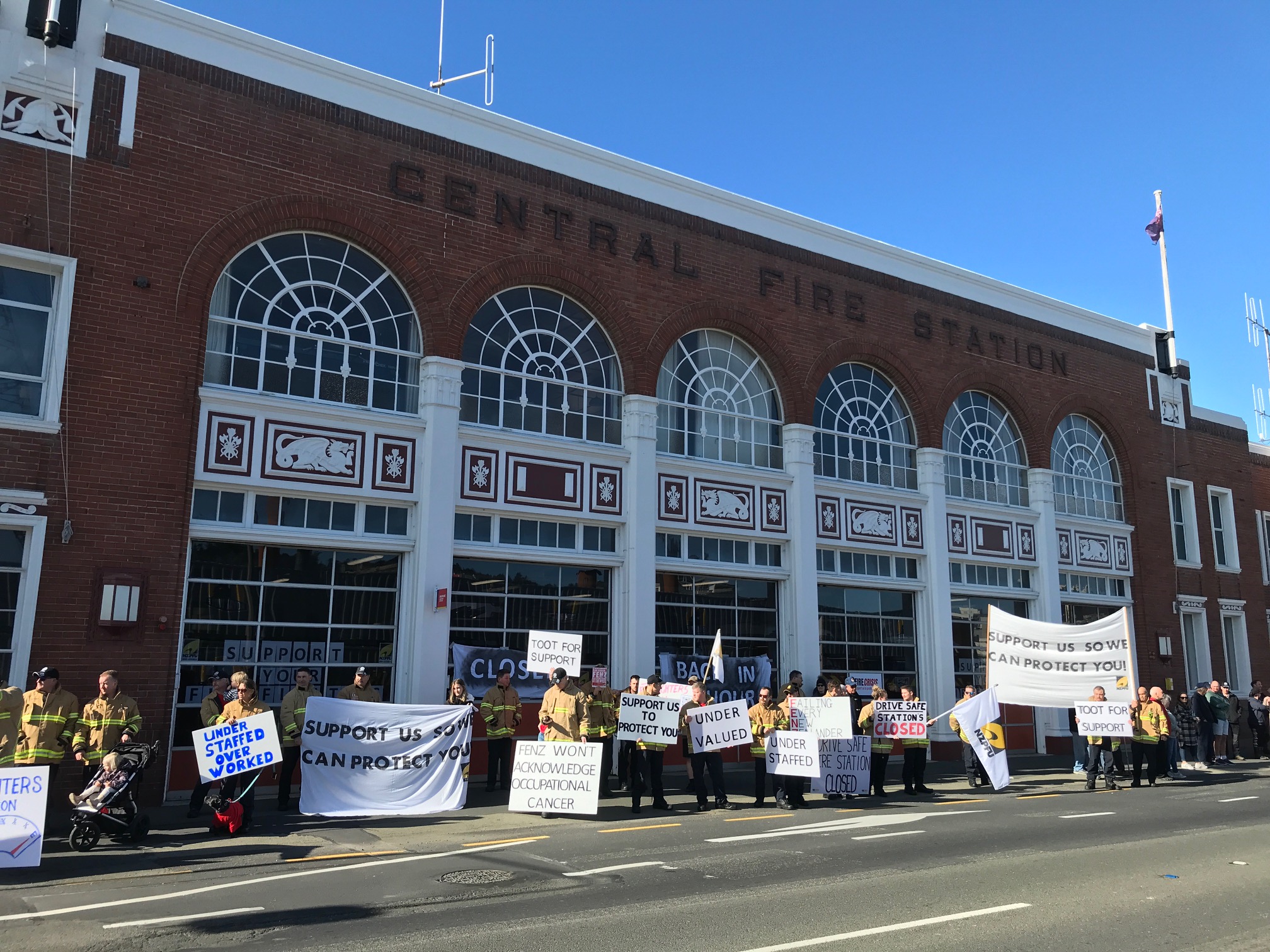Dunedin firefighters say their strike today is about more than money.
The New Zealand Professional Firefighters Union has accused Fire and Emergency NZ of refusing mediation over what it says are unsafe staffing levels, faulty equipment, poor pay and conditions.
The union's Dunedin local president, Antony Mason, said off-duty and firefighters working gathered to form a united front at the Dunedin City station where an hour-long walk-off took place at 11am. Crews walked away from Mosgiel station too.
Senior Station Officer Mason said he had mixed emotions about the strike, which was something firefighters did not want to have to do.
‘‘This falls squarely on the shoulders of our senior managers, our executive leadership team and the board of fire and emergency."
Fenz had walked away from mediation and their application for facilitated bargaining would likely extend the dispute and had taken the union by surprise, SSO Mason said.
Firefighters wanted their concerns taken seriously and the industrial action was about more than money.
They were calling for recognition of the occupational risk of cancer and the workload that attending medical calls created.
Unsafe staffing levels needed to be addressed, as well as attention paid to the health and wellbeing of firefighters, he said.
‘‘We believe they are playing with community safety over this’’, SSO Mason said.

The fire service had deteriorated over the years and now faced an even higher workload since crews began attending medical calls in 2013, he said.
Dunedin firefighters were still driving the same appliances as when he working.
‘‘It’s really under-resourced,’’ Mr Fitzgerald said.
Former Willowbank Station Officer Peter Corbett, who retired from his firefighting career in 2009, had a simple message for Fenz’s management team.
‘‘Remember where you came from."
Their careers had started in the same stations with the same equipment, but they were now were feathering their own nests, Mr Corbett believed.
Like Mr Fitzgerald, he was concerned that things had deteriorated over the years.
‘‘It's not a healthy fire service. If they can’t look after us, how are we going to look after the public?’’
In a statement yesterday, Fenz National Commander Russell Wood said it made the application for facilitated bargaining because it was the fastest way to bring the ‘‘long and drawn-out’’ negotiations for over a year to a conclusion.
Mediation had effectively broken down and the parties had reached an impasse, National Commander Wood said.
‘‘We genuinely believe our position is fair and reasonable, and the union thinks their position is too,’’ he said.
It was committed to progressing the issue as quickly as possible.
He was ‘‘disappointed and dismayed at the level of misinformation being spread around about pay and conditions for firefighters’’.
Extreme, inaccurate and even alarmist language was not helpful, he said.
‘‘Some of these claims are based on misleading and inaccurate information, which is why we haven’t been able to agree on a way to address these claims within the bargaining."
Seven incidents during strike period
Fenz said it was alerted to seven incidents in the main urban areas covered primarily by career firefighters between 11am and 12pm today. They were all alarm activations.
There were 10 calls in total across the country. There were two medical calls in volunteer areas and one minor structure fire also in a volunteer area.
"It is fortunate no serious fires or other emergencies that we would normally respond to occurred during this full strike by NZPFU members,' National Commander Wood said.
"I’d like to thank Kiwis for their vigilance during the strike hour.
"St John and Wellington Free Ambulance did not call out career crews to medical calls for the hour of the strike, as agreed, and volunteers only responded to medical calls within their area."
He urged the union to withdraw current strike plan.
‘We believe the fastest and most effective way to reach a practical and fair resolution is with the Employment Relations Authority facilitation process.
‘It is the right thing to do for our people and our communities so that we can bring the bargaining to a resolution.’











